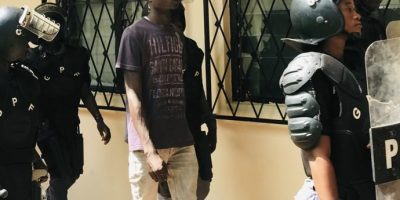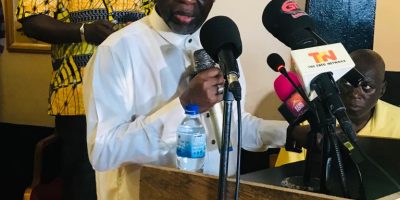 By Lamin Ceesay
By Lamin Ceesay
Exactly 16 years today when over dozen of school children who were protesting against the murder of a male student and the rape of a 13-year-old school girl by security officers were shot and killed by armed uniformed officers. The president of the Gambia has been accused of giving the orders for security officers to open fire at student demonstrators in the West African nation of the Gambia on 10th and 11th April 2000.
The government at the time accused its opponents of using the students and promised to leave no stone unturned in its quest to identify and punish those responsible.
However, a government own commission of inquiry identified several failures by the executive in its dealing with the students. It also indicted several security officers and minister of the Interior, Ousman Badjie for the murder of the students.
The government reacted by using its majority strength in parliament to indemnify all those who were indicted by the commission in the ‘spirit of national reconciliation’. The government also indemnified the president from future criminal proceedings for any wrongs he may have committed while serving as president and commander-in-chief of the Gambian army.
But Omar Joof, president of the Gambia Students’ Union (Gamsu) at the time, said the ‘massacre’ of Gambian students by the country’s own security forces while on peaceful demonstrations with ‘legitimate grievances’ was ‘deliberate’ and aptly exemplifies the character of the Gambian regime.
“The massacre was deliberate, and the orders came from Dictator President Yahya Jammeh himself, an act for which he has never shown remorse,” he said.
“Instead, the government started off by blaming the students for starting the shootings. When the post-mortem results did not corroborate that they backed off, and started blaming the student leadership for having been instigated by the country’s opposition. That has also fallen at the seams and any attempt to personally blame me for the demonstrations cannot stand because there is incontrovertible evidence that the decision to go out by the student leadership was a collective one.”
Mr Joof who now lives in exile in Halifax, Canada added: “You are hereby assured that but for the stupid politics of the Yahya Jammeh dictatorship in the Gambia; the Student massacre of April 10th/11th 2000 would never have taken place.
“In view of the fact that the culprits in both the rape and murder case were members of the security establishments in the country, they dragged their feet and perpetually procrastinated on the institution of the due process of the Law. The murder and rape case took place on March 8th and 11th respectively.
“Within 72-hours both the ministries of Education and the Interior were in the picture. The president of the country dictator Yahya Jammeh was personally informed. From that point, we took up the matter with the top brass of the police department as a national student leadership. We never asked for anything other than the immediate and fair institution of the due process of the law. But they procrastinated, apparently with intent to protect the criminals.
“It was at the realisation of this attitude, that we sent them a letter of demands, copied to the ministries of Education and the interior; as well as the Office of the President. We made it obvious that if our demands were not met, we would be obliged to take appropriate action.
“The rest is now common knowledge. We went out on Monday 10th April 2000 to protest the murder of an 18-year-old senior secondary school male student, and the rape of a 13-year-old junior secondary school female student. In line with their reactionary, barbaric and brutal instincts, they turned their guns on us and in demonstrations throughout the country in a two-day spate; they gunned down 12 of us; plus a Red Cross volunteer and a four-year-old child.”
Mr Joof called on President Yahya Jammeh to ‘redeem’ himself and ’embrace the’ truth’ about April 10th/11th 2000.
“Perhaps that is a waste of time because he is irredeemable as the devil himself,” he added.
The exile leader also called on Gambians to redeem their country from the ‘bloody hands’ of Mr Jammeh in order to affect a process of national redemption, restitution and transformation.



Ma sha Allah great and thanks for sharing